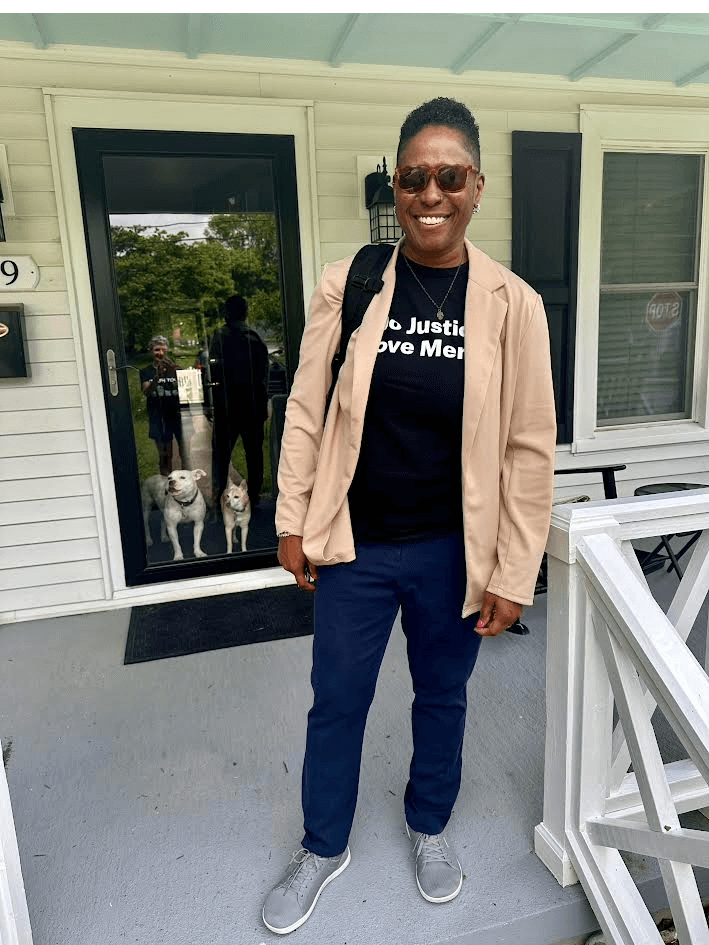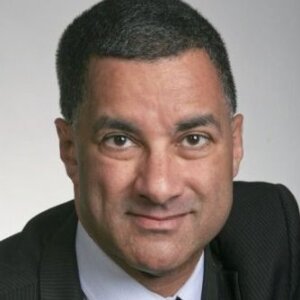‘Rabbi to watch’ Sandra Lawson turns DEI focus to North Carolina
Reconstructing Judaism’s Lawson will lead racial justice group in the state she now calls home

Rabbi Sandra Lawson will lead Carolina Jews for Justice. Courtesy of Sandra Lawson
When Rabbi Sandra Lawson became Reconstructing Judaism’s first director of racial diversity, equity and inclusion in January 2021, her hiring was hailed as the denomination making good on commitments it pledged toward racial justice in the wake of George Floyd’s murder the year before.
Since then, Lawson — a mainstay on many lists of persons, if not rabbis, to watch — has been sought after countless times for Jewish advice on race relations, both within the Reconstructionist movement and beyond.
Now, her national platform turns regional after leaving the job last month to lead Carolina Jews for Justice in North Carolina where she makes her home.
Given the nationwide backlash against DEI promulgated by the second Trump administration, is it a step up or down?
“This is an executive director-slash-CEO role, so it is a step up for me professionally,” said Lawson, 55. A North Carolina resident since her 2018 graduation from the Reconstructionist Rabbinical College as one of the first African American, queer, female rabbis, the St. Louis native moved to the state to become a chaplain and Hillel educator at Elon University after being passed over for pulpit rabbi positions.
“In both cases, I was told ‘Our congregation is not ready for a Black rabbi,’” Lawson told the Forward in 2023. She sought to turn those rejections into motivation toward DEI empowerment at Reconstructing Judaism, citing as achievements an increase in the number of students of color at the denomination’s rabbinical school and its recruitment of a Black faculty member (who was initially the college’s head).
Lawson also created a Congregation Assessment Tool for Racial DEI to help rabbis make their religious spaces more welcoming. She counts as a supporter and mentor the denomination’s president, Deborah Waxman, who also is stepping down, effective next year.
While a search is underway for Waxman’s successor, the group has not yet finalized plans on one for Lawson, whose hiring by RJ was initially funded by the Jews of Color Initiative.
“With this position, we are exploring options. We are in the midst of developing our annual budget and haven’t made a specific decision,” said RJ spokesman Bryan Schwartzman.
“Reconstructing Judaism remains committed to joining and leading Jewish efforts to dismantle systemic racism, and to advancing racial diversity, equity, and inclusion. It’s right in our strategic plan,” he continued.
Those are goals Lawson’s new group seeks to achieve in North Carolina, which despite its Carolina name, does not include South Carolina, a red state versus North Carolina’s purple. South Carolina also has a more racially polarizing past dating back to the opening shots of the Civil War, along with a higher Black population — 26% versus 22% — than its northern neighbor.
North Carolina’s Jewish population is about 1%, roughly at the midpoint of all U.S. states. It hasn’t garnered broad national attention since the days of Harry Golden’s Caroline Israelite newspaper during the Civil Rights Movement.
But that’s changing, Lawson says.
“We have a lot more people moving here” in recent years, she said, “and a lot of those people are Jews. The largest pockets are the Greensboro and Research Triangle areas, and Charlotte and Asheville.”
Lawson said the group seeks to have organizers in each of those areas, and that overall the state is primed for racial justice work, despite “a national administration that’s just throwing balls constantly and you can’t catch them.” She cited as an ally the state’s first Jewish governor, Josh Stein, who as a candidate in 2024 overwhelmingly beat self-described “Black Nazi” Mark Robinson, the Republican nominee.
As for the group’s specific work, she said, “This a movement, and I think Jews for a variety of reasons have often not taken the lead in many of these social justice movements. I think this is changing. To have a Jewish organization led by a rabbi, who’s also a Black person who can understand the intersections of all of these issues — this is real change.”
As she embarks toward that change, does she feel her similar work at Reconstructing Judaism was completed?
“It’s never done,” she said.
















